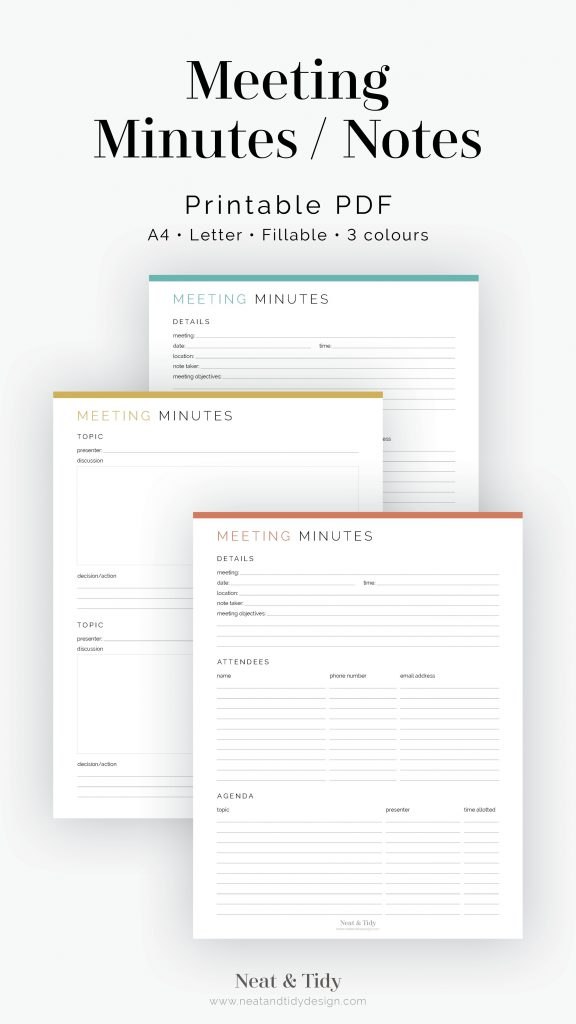The Value of Good Meeting Minutes
Meeting minutes are the most important part of a meeting. They remind participants of what was said and decided, are used to share that information with people who could not attend, and record the information for future reference.
When it comes time to measure the progress made they’re a useful document to review. Meeting minutes also help with accountability by making it clear whose duty it is to perform what action. Effective meeting minutes are clear and to the point without leaving out important information.

5 quick tips for improving your minute-taking skills
- Be prepared
When you’re in charge of taking notes, be on time so you have time to set up and make sure that you have everything you need. Record the meeting notes in a way that’s most comfortable to you, whether that’s pen and paper, using a template, or on your computer - Listen before writing
By listening first, you can more easily summarize the points being made and it helps you decide what is important and what’s not. If you miss something, make a note to ask the relevant person after the meeting - Use keywords or bullet points
It’s quicker to write down than full sentences, and you can re-write it later when you have more time - Write and fine-tune
While the meeting is still fresh in your mind, type up your notes and re-order them if necessary. You want to make sure that all the important information is in there; such as topics covered, actionable items, decisions, items that need to be postponed for the next meeting, questions that need to be answered - Send the notes out promptly
It’s good to aim to get the notes out within 5 days of the meeting, though ideally within 48h.
Since meeting minutes capture the most essential information of a meeting, they’re important. However, it doesn’t have to be scary to take meeting minutes. Hopefully this article has given you some pointers to make it less daunting.
And if you are looking for a template, check out the Meeting Minutes PDF in the store
